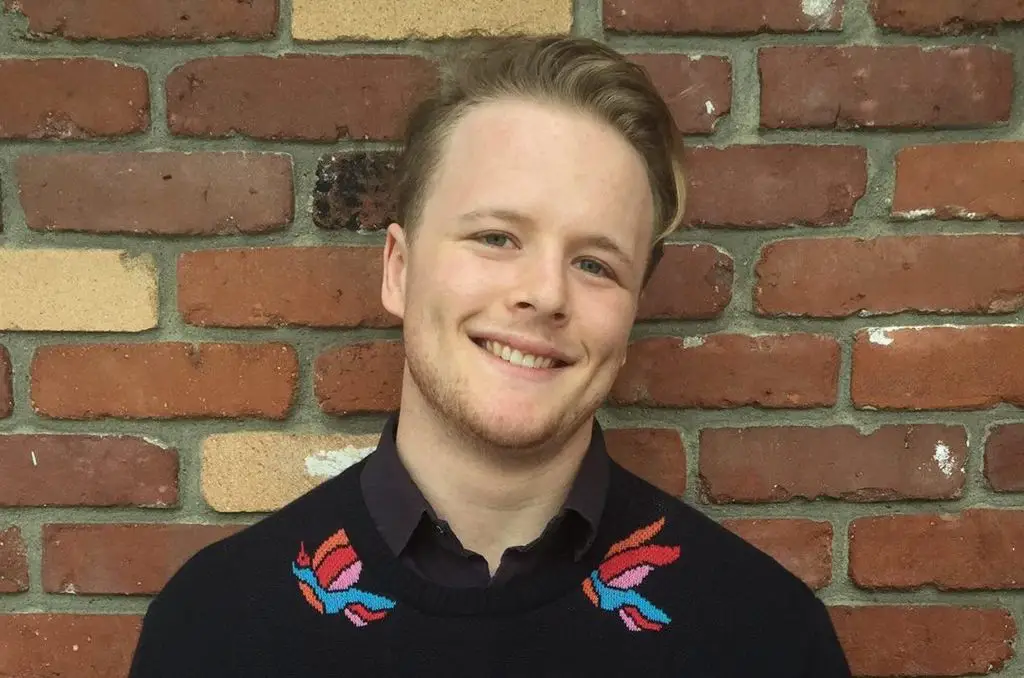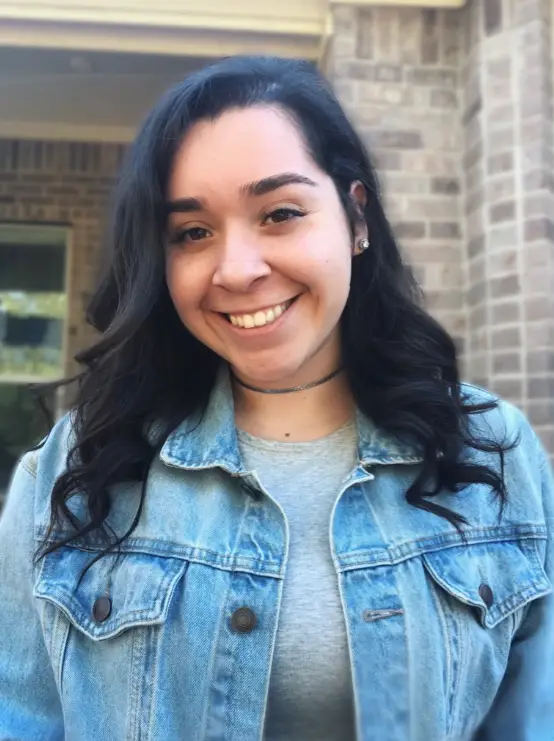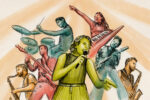While choosing where to pursue his music career, Yale University student Max Vinetz says he wanted to ensure that the institution he chose provided him with the opportunity to engage with people.
Measuring his success by making a lasting impact on others, Vinetz has helped other musicians and performers do the same by creating one of the first organizations to put on concerts, both composed and performed by students.
Vinetz has already made a name for himself by composing a number of different works. Most recently, he was awarded the 2018 ASCAP Foundation Morton Gould Young Composer Award, which encourages the most talented creators of concert music.
Adriana Luna: Why did you decide to attend Yale to pursue your music career?
Max Vinetz: There were both external and internal factors that went into my decision, I was always very centered on my academics as well as serious about my passion for music; Yale was the perfect balance between the two.
AL: You mentioned you’re majoring in music, what do you plan on pursuing in the music industry after you graduate?
MV: As a career, I’m still figuring it out but I know I won’t regret my major. I know realistically it will be difficult but I would rather pursue a career I know I love and I’ll be genuinely happy with rather than prolong a potential existential crisis later on.
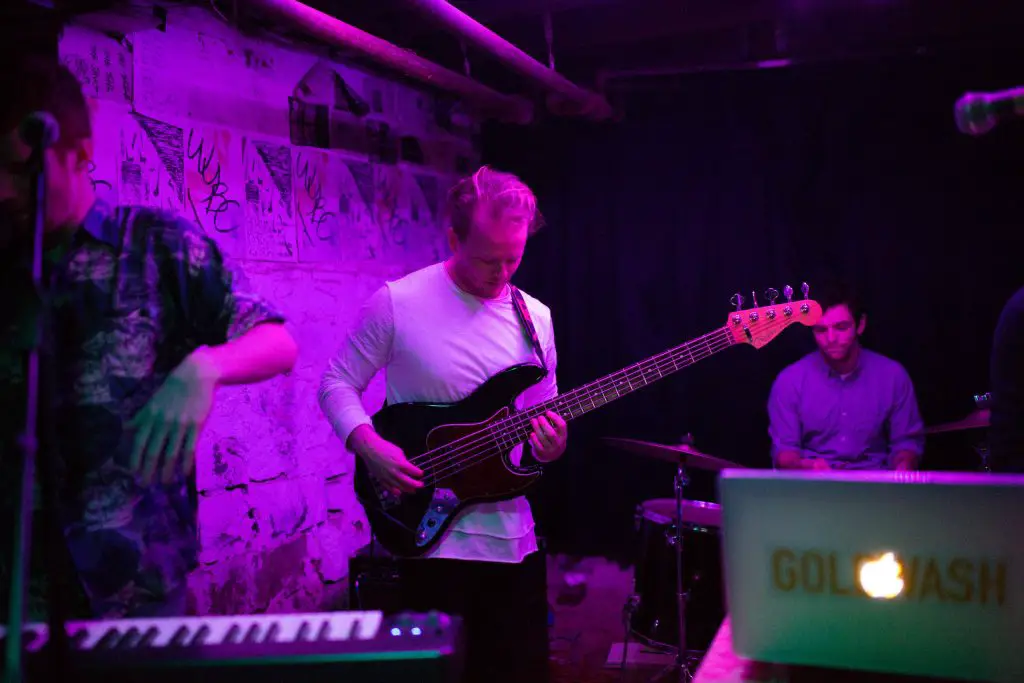
AL: Was there a specific event that originally piqued your interest in music?
MV: My dad started me on piano around age five; I hated it. It’s hard to explain the love that formed with piano once I started taking lessons, it was an element that I felt I was missing. In fifth grade, a group of kids approached me looking for a bassist to play in their band and I agreed — I had never touched a bass in my life.
I went home that day and asked my dad if we could get a bass, he agreed and from there I realized that music was something that I could not have lived without.
AL: It’s very easy to become discouraged when learning something new, did you face any similar feelings while learning both instruments?
MV: At first, it was really hard to get into piano because I wasn’t playing anything that sounded good to me. Both bass and piano were very easy at first and it came to the point where it was too boring to practice. Over time, I got much better at playing both instruments.
AL: When did you decide to start composing your own pieces?
MV: Since I got so bored at practicing, I began improvising and playing around with different chords to see what sounded good. I had never had a composition teacher, so I never thought in terms of chord progressions — I thought in terms of chain reactions.
It was a long road of guessing and checking. Besides the guitar pieces I would come up with to show off in front of friends, the first piece I ever had performed was for a TEDx event when I was a junior in high school.
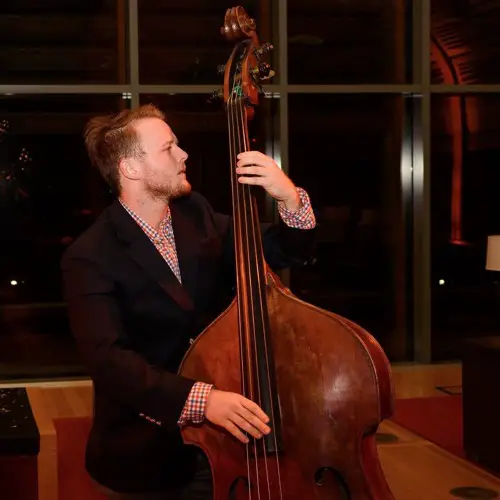
AL: The event you first composed was performed by a chamber orchestra, is it more difficult to compose pieces for so many parts?
MV: Chamber orchestras take a lot more time to write each individual note simply because it has so many parts. In terms of a piece being a piece, a concept is always the hardest part to arrive at so executing it in a form of a chamber orchestra isn’t more difficult, it’s just more time consuming since you have to fit all the different parts into a whole.
AL: Previously based on improvisation, what does your composition process look like now that you are much more experienced?
MV: Early on, there was no process; it was simply trial and error. Now, my process is very technical, and it tends to vary on the material. There are a few approaches I take when composing a new piece. Usually, I’ll start off with an abstract idea and build from there. I try to incorporate different moments that I envision and then connect those moments in the entire piece.
AL: Do you have any musical inspirations?
MV: I’m more inspired by my friends than older classical music. Classical music is considered an old form of art by today’s standards; I tend to find direct inspiration from visual art and pop music.
AL: Your compositions have been read and performed by multiple ensembles and orchestras, how does it feel to know all your hard work is being recognized?
MV: Every time one of my works is recognized, it feels great. However, unless it really has a direct effect on people, it still feels a little empty to me. I want my work to be impactful. Luckily, that’s been happening a little more recently, so it’s satisfying when my work serves a purpose and connects with people.
AL: Recognition seems to come with hard work, what can we expect from the premiere of your new concerto coming up?
MV: It’s not a typical concerto, I tried to unite the violin and the entire chamber orchestra. The entire concerto draws a lot of inspiration from Appalachian fiddle play and dialogue from “Appalachian Spring” by Aaron Copland. So, while drawing inspiration from a very traditional place, it’s being used in a way that is outside of its context.
AL: You also co-founded the New Music Cooperative at Yale, what is the organization’s purpose?
MV: When I was a freshman, I realized that there was no establishment on my campus that would help me compose concerts and that made me feel isolated. I got together with some of my friends to see if they would be interested in creating an organization that would put on concerts and music, with collaborations from different composers and performers.
Four years later, the organization has been going strong ever since. Even though we may not have done concerts that change people’s lives thus far, at the very least, people know that there is a community of composers and musicians out there that want to identify and grow as such.
AL: It’s clear that you have already begun to make a name for yourself, what’s next?
MV: Grad school is next for me. I’ll be attending Rice University in Houston, Texas where I have a teaching position lined up. Also, some next steps for me would be getting used to teaching younger people, playing more jazz and writing more mature and thoughtful music. I have so many ideas for multimedia projects that I hope to pursue as well.
AL: How do you measure your own success?
MV: I think that if you make something that provides a unique experience that people can relate to — that is success. Success to me is just being able to engage with people.
AL: What advice can you give to other musicians and composers who fear failure?
MV: It’s about the work you do, if you put enough work into one thing, it has the power to make a difference. Nothing can really change the world; so, you should do what makes you happy and focus on the quality of your work. Never do something because you think you should, do it because it works. If you genuinely believe something works, it probably does.


